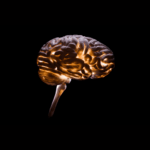
Non-caffeine components of coffee and their effects on neurodegenerative diseases
Coffee consumption is associated with reduced risk of Alzheimer’s disease and other neurodegenerative processes, but the effect may be more than a matter of caffeine.
Can an annual flu vaccine reduce your risk of Alzheimer’s disease?
A recent retrospective study suggests that flu vaccines reduce risk of Alzheimer’s disease, but the study raises as many questions as it answers.

Adding context to the Alzheimer’s disease research fraud charges
This past July, a news article published in Science sent shockwaves through the scientific community when it reported that one of the most influential and frequently-cited publications in Alzheimer’s disease (AD) research was evidently based on fraud.

Alzheimer’s disease — what labs can tell you about your risk
This clip is from AMA #14: What lab tests can (and cannot) inform us about our overall objective of longevity,…

Why does Alzheimer’s disease affect more women than men?
This clip is from episode #138 – Lauren Miller Rogen and Richard Isaacson, M.D.: Alzheimer’s disease prevention—patient and doctor perspectives,…

The connection between sleep and Alzheimer’s disease
This audio clip is from episode #47 – Matthew Walker, Ph.D., on sleep – Part I of III: Dangers of…

Does exercise reduce the risk of Alzheimer’s disease?
This clip is from episode #18 – Richard Isaacson, M.D.: Alzheimer’s prevention, originally release on October 1, 2018.

Peter on Alzheimer’s disease prevention and the latest on APOE4
This clip is from episode #202, Peter on nutrition, disease prevention, sleep, and more, originally released on April 11, 2022….



